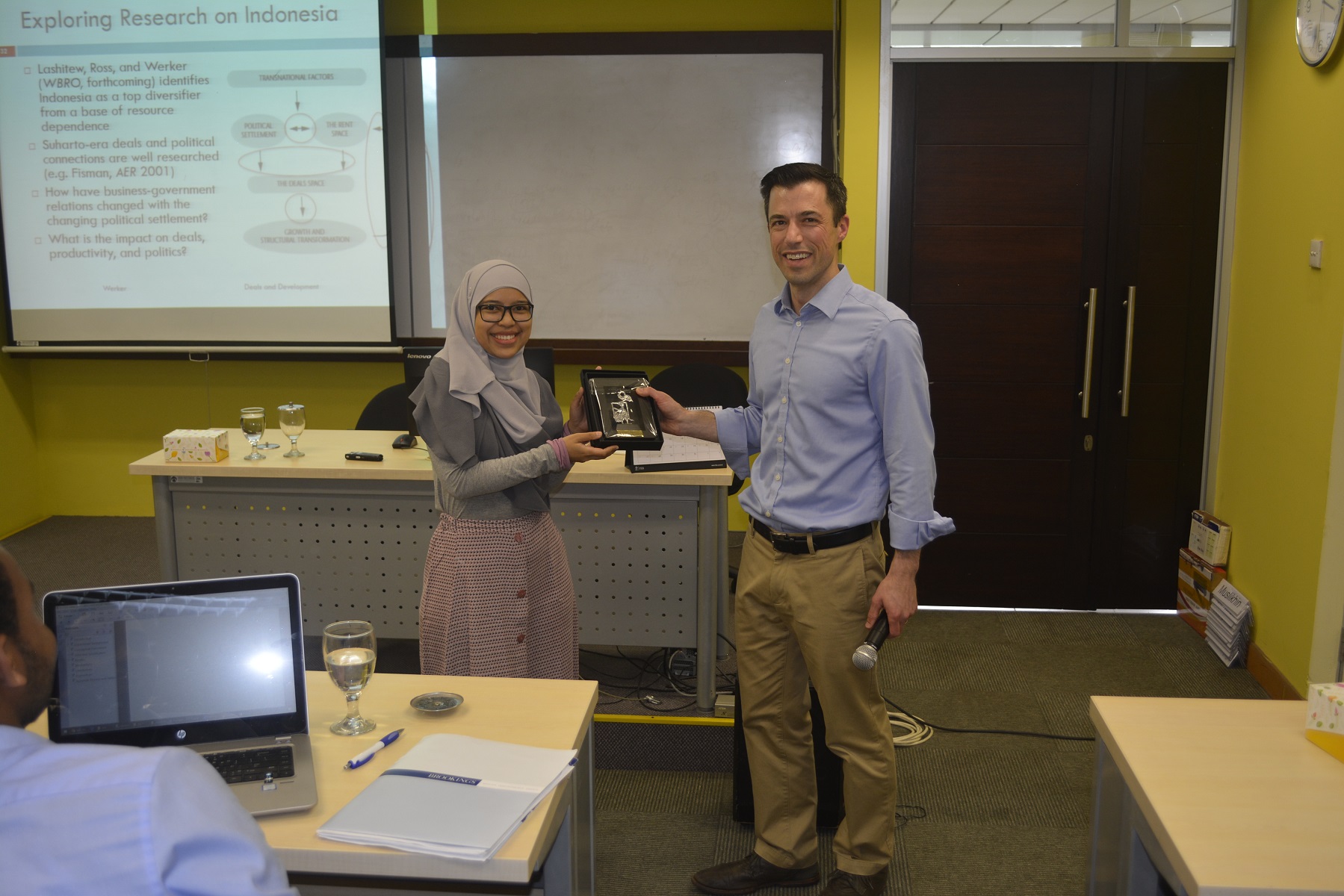PROF. ERIC WERKER: THE POLITICAL DYNAMICS OF GROWTH EPISODES
Nurlaily Setyasari ~ International Office FEB UI
On Wednesday (27/11/2019), FEB UI Postgraduate Program of Economics held a guest lecture entitled “Deals and Development: The Political Dynamic of Growth Episode” with Prof. Eric Werker, PhD from Simon Fraser University, Canada. His researches focus on how less developed countries can build more thriving and inclusive private sectors, particularly when they are rich in natural resources, and how international actors can play a positive role in creating successful societies.

The lecture opened with welcoming remarks from one of FEB UI lecturer, Jahen Fachru Rezki, PhD. Before the lecture started, Prof Werker explains to the audience that the whole lecture is based on his book with the same title as the lecture; “Deals and Development: The Political Dynamic of Growth Episode.” He first presented the puzzling case of Malaysia’s economic slowdown. Before the 1990s, Malaysia has a very rapid growth (4.9% per capita) but after the Asian Financial Crisis, the country has a prolonged economic downturn. He then concludes that the institution (and to an extent, the economic policy) itself can not drive growth in the medium run. Thus, there must be something else that can explain the growth acceleration and collapse.


The lecture opened with welcoming remarks from one of FEB UI lecturer, Jahen Fachru Rezki, PhD. Before the lecture started, Prof Werker explains to the audience that the whole lecture is based on his book with the same title as the lecture; “Deals and Development: The Political Dynamic of Growth Episode.” He first presented the puzzling case of Malaysia’s economic slowdown. Before the 1990s, Malaysia has a very rapid growth (4.9% per capita) but after the Asian Financial Crisis, the country has a prolonged economic downturn. He then concludes that the institution (and to an extent, the economic policy) itself can not drive growth in the medium run. Thus, there must be something else that can explain the growth acceleration and collapse.


Next, Prof Werker tries to explain the question by using the framework of Transnational Factors; which includes space rents and political settlement. He hypothesised that in frontier economies, growth is episodic and the business environment is defined by “deals” and not “rules”. Deals happen when the typical firm has little to do with the neutral application of policies. On the contrary, Rules are what happens when the typical firm is determined by the neutral application of the policies. Growth will occur when deals move from disordered to ordered, and vice versa. To maintain growth, it should be facilitated by the ordered deals.

Then, Prof Werker tried to test the hypothesis from selected countries in Asia and Africa. He founds that to ignites the growth, there must be a shift from disordered deals environment (usually found in countries with unstable political settlement) to a closed ordered deals environment (found in countries with a dominant party setting). However, the real challenges are to maintain the growth, since declines can bring more declines. He also highlighted how economic models are hard to change, and thus the country transformation can not occur in a short time.


Finally, the guest lecture ended with a QnA session and exchange of a token of appreciation with Mrs Qisha Quarina, PhD. We very much thanks to Prof Erick Werker and his explanation regarding the roles of deals as well as the understanding of how economic transformation can bring a better condition and stability to the country. Hopefully, the knowledge will be useful in designing future policies and the first step for future research. (IOFEB/NS)


